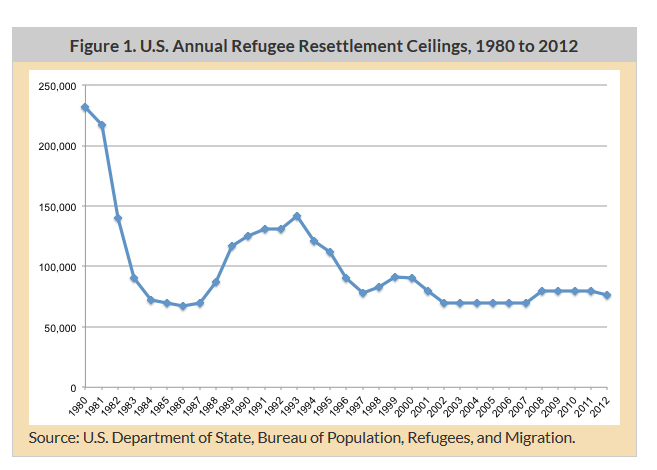White House Refugee Plan To Help Syrians And Europe Draws Concern

More than 10,000 Syrian refugees will be granted asylum in the United States for the next fiscal year, the Obama administration said Thursday -- an announcement that was met with concerns over whether government agencies would cut corners in the application process to meet this influx and potentially allow militants into the country.
Director of National Intelligence James Clapper told CNN Wednesday that the current procedure is a "disaster of biblical proportions" that poses an opportunity for terrorist groups such as ISIS to "infiltrate operatives among these refugees."
Background checks for visas are an extensive, complicated process that often can take years, but the U.S. can make the decision to offer temporary protection status to people from countries inundated with conflict or displaced by severe weather.
The U.S. grants this asylum status on a limited basis, but the president can increase the number in certain emergency situations. In recent years, the U.S. has admitted 50,000 to 70,000 refugees per year, according to the Migrant Policy Institute.
President Barack Obama proposed to raise the number of refugees allowed into the country by 5,000 a year starting Oct. 1 in hopes of helping relieve Europe of the thousands seeking asylum there from the Middle East. European countries have grappled with how to provide aid to the more than 350,000 refugees who have tried to reach the area this year.
Humanitarian organizations pressured Obama in the past few months to increase asylum status as the number of refugees in Europe surged. In such situations, the president has to consult with congressional committees, as he did Wednesday, but he can move forward even if there is pushback.
"The president will come out with a memo that says 'I've consulted with Congress about these certain regions' and explaining the background, so you don't need Congress to act, but there needs to be consultation," said Antonio Ginatta, the U.S. advocacy director for the Human Rights Watch organization.

Questions have been raised about how the Obama administration will deliver on its promise to accept these numbers of refugees next year through a process that typically takes 18 months to two years.
"The question becomes, will Congress support that?" a senior State Department official told CNN. "Can we move this process that we have, that doesn't turn on a dime, to start bringing larger numbers sooner? That's hard."
Some have expressed concerns about whether the government will take the necessary security precautions in the expedited application process -- especially at a time when the U.S. security offices are vigilant about attempts by militant groups such as ISIS to enter the country.
"Certainly, I don't think there is any waiving of security procedures with the process," said Michelle Mittelstadt, a spokeswoman for the Migration Policy Institute.
State Department spokesman John Kirby said Thursday the application will require "the proper vetting procedures to make sure, particularly when we're bringing in people from that part of the world, that we're doing it safely and securely."
More than 16,266 applications from Syrians were considered during the 2014 fiscal year, but the U.S. only admitted 1,293 refugees, according to Human Rights Watch. Syria is the most recent country to receive temporary protection status, which it was initially granted in 2012.
Congress established TPS in 1990 to offer a reprieve to refugees for six to 18 months. Through the visa, refugees are granted the authorization to work. If the conditions abroad remain unsafe, refugees can renew their status after its expiration.
Homeland Security has afforded TPS to refugees from several countries in recent years. Haitians have been offered temporary asylum since the 2010 earthquake that devastated their country. Last year, there were 58,000 Haitians living in the U.S. with the status.
Other recipients include El Salvador, Honduras and Sudan for reasons such as earthquakes and civil conflict. El Salvador has one of the largest populations living in asylum in the U.S., with more than 212,000 beneficiaries, according to U.S. Citizenship and Immigration Services.
Around 340,000 people are living in the United States with temporary protection status, 2,600 of them from Syria.
Once refugees immigrate, the government does not oversee their resettlement, although the U.S. works with organizations such as the United States Conference of Catholic Bishops and the Hebrew Immigrant Aid Society, which provide resources to refugees to help them rebuild their lives.
© Copyright IBTimes 2024. All rights reserved.






















